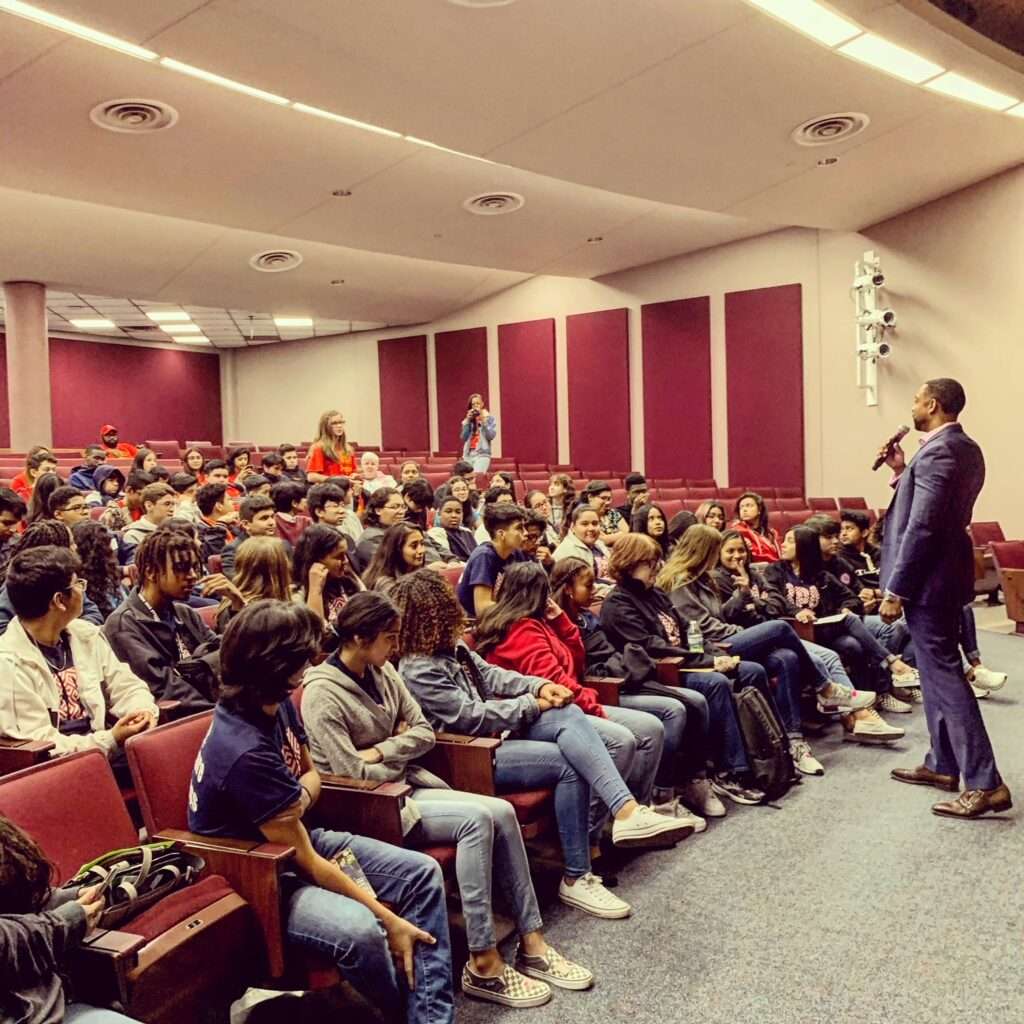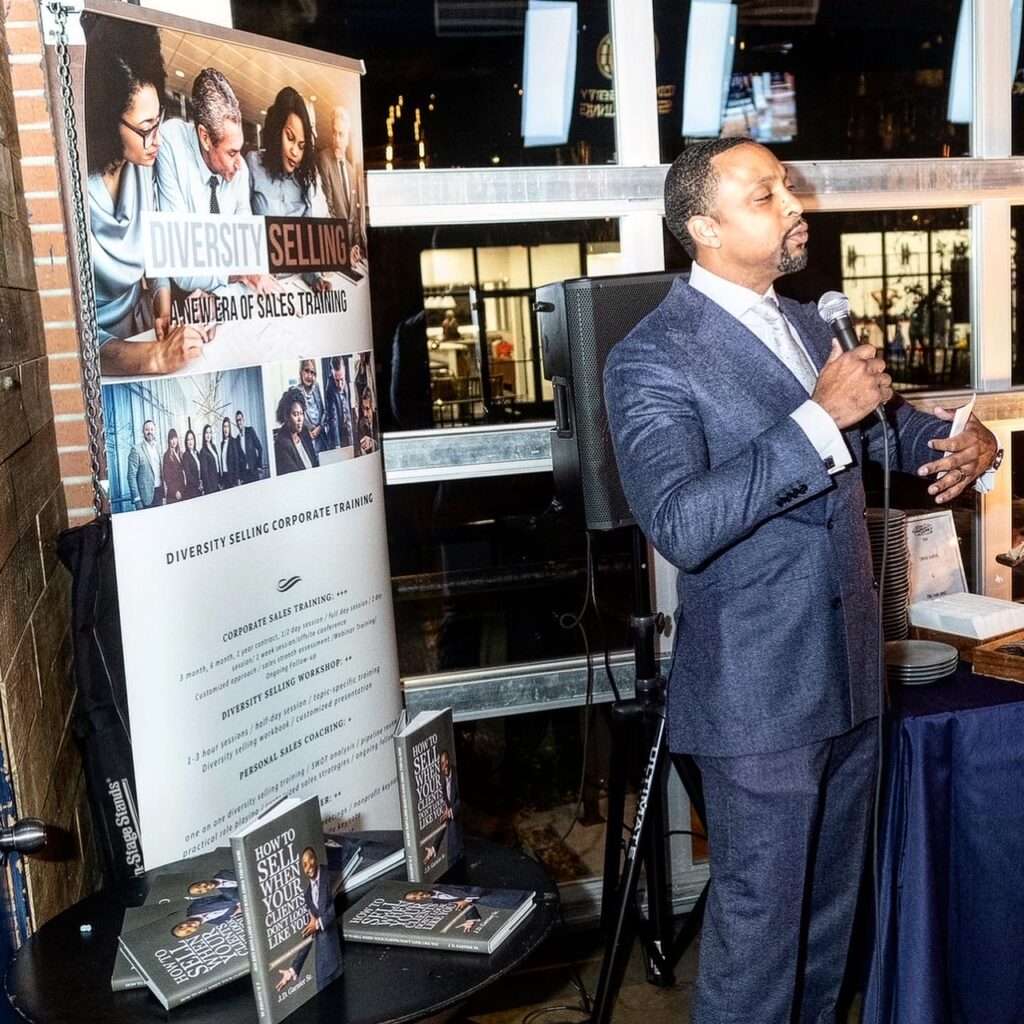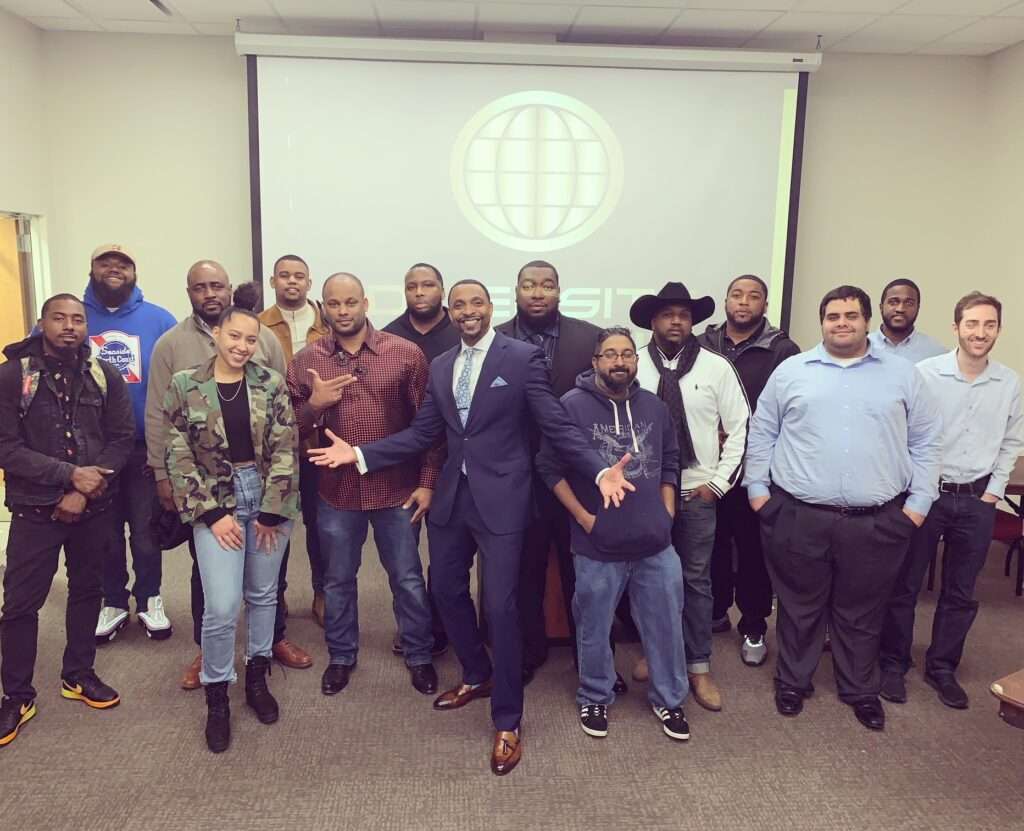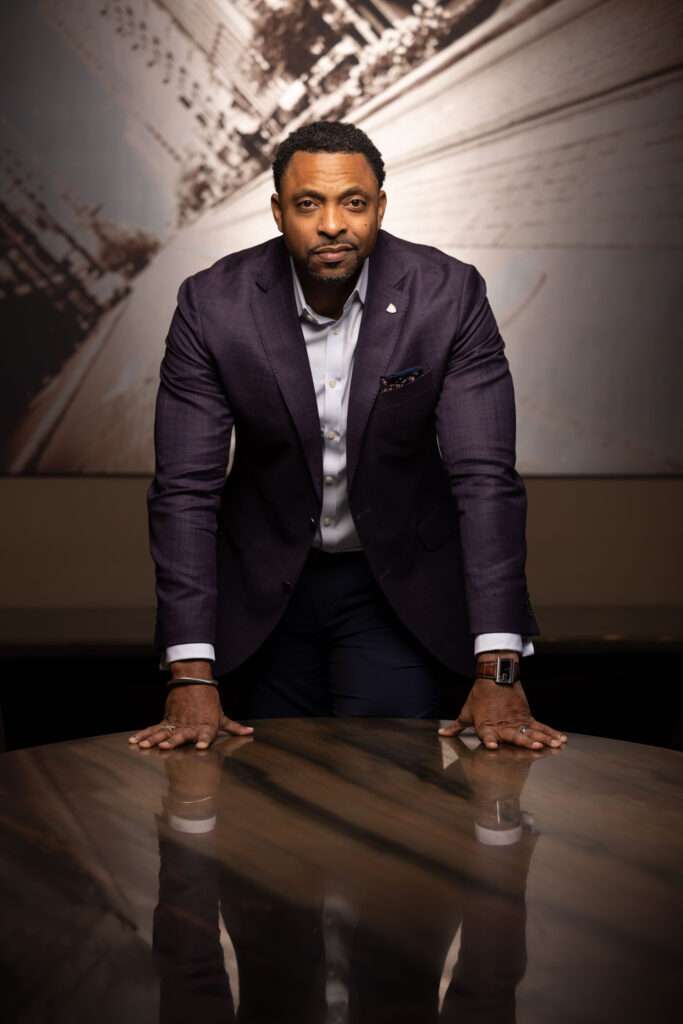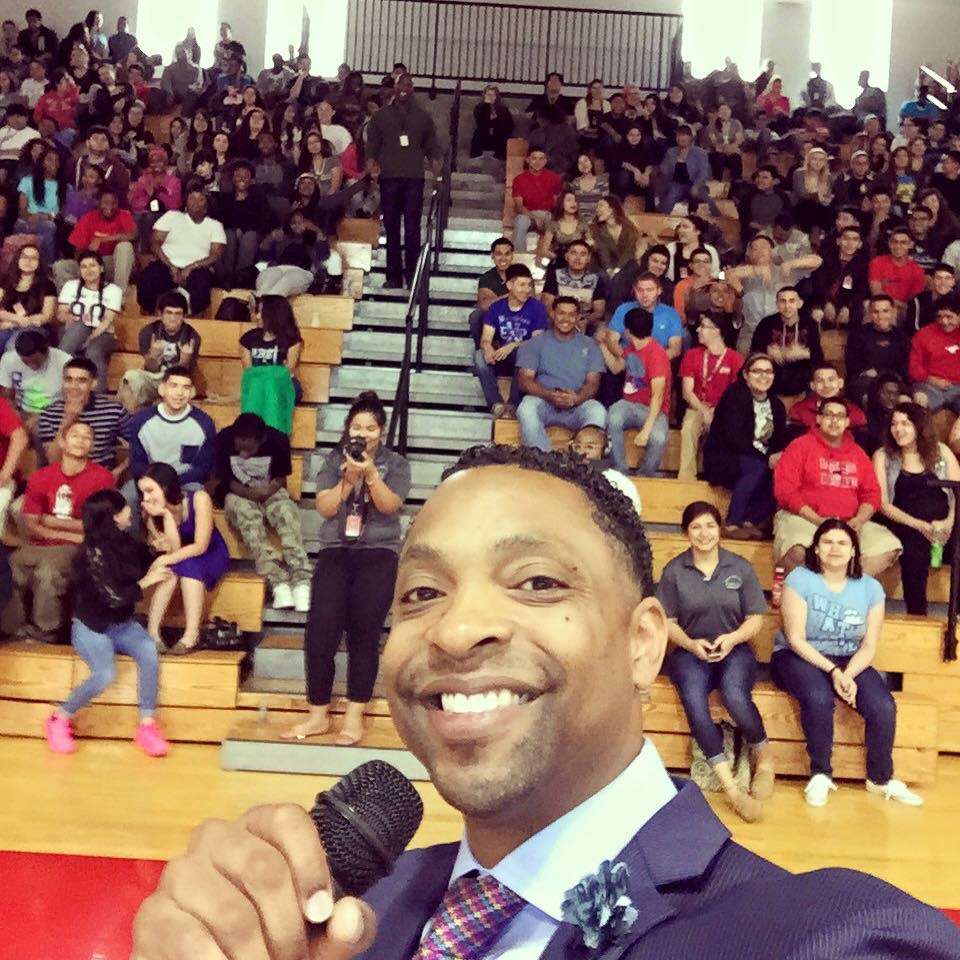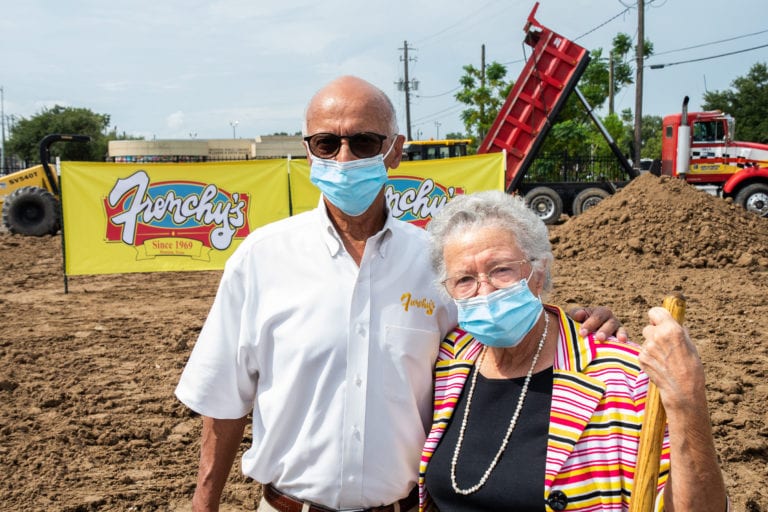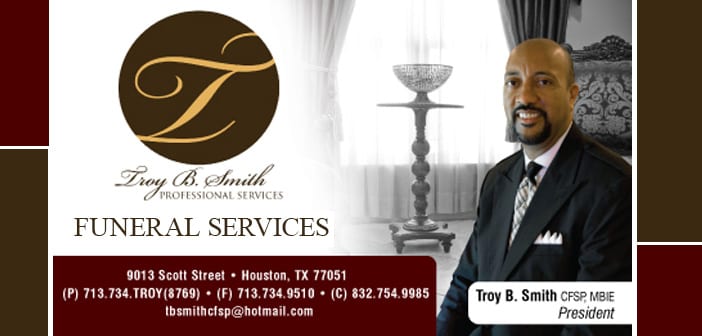“We have to protect and preserve what we already have.” ~ J.D. Garnier Sr.
The so-called wealth gap is the substantial disparity in wealth between white and black families. According to data from 2021, white families have a median net worth of more than $188k, while black families have a net worth of less than $24k. Furthermore, black families have a median income of under $17,000, but white families have an average income of over $86,000. Most crucially, white households own 86.8% of the wealth, whereas we own less than 3%.
How do we increase the black community’s share of wealth? It’s an issue that economists, professors, and other specialists are still grappling with. According to some experts, catching up economically will take 200 years. However, J.D. Garnier, believes we can close the wealth gap in one generation.
Early Beginnings
JD Garnier began his professional journey as a financial advisor at a young age while growing up in New Orleans, Louisiana. By the time he was 22, he had obtained all necessary licenses and was providing financial planning advice to clients.
He recalls the challenges he faced in those early days, such as selling life insurance to grandmothers living in the New Orleans projects, who were seeking protection for their children and grandchildren. At that time, attracting clients was no easy task, as he would only have a handful of attendees at the seminars he hosted on wealth and financial planning.
“There were times I was selling life insurance in the projects of New Orleans to grandmothers on their children and grandchildren’s lives for protection. Business was hard to come by back then,” he said. “I would host seminars on wealth and financial planning and 2-3 people would show up.”
Recognizing the need to enhance his knowledge and skills to compete with more experienced advisors, JD Garnier made the decision to pursue a legal education instead of business school. His determination paid off when he was awarded a full scholarship to Southern University Law Center.
Hurricane Katrina struck New Orleans just one week into his first year of law school. Fortunately, Garnier was able to find an apartment in Baton Rouge for his entire family. Despite juggling law school, family, and the aftermath of Hurricane Sandy, he finished his first year on the Deans List. JD relocated to Houston that summer and enrolled at South Texas College of Law.
“When I moved to Huston, I was working full-time for an investment firm during the day and attending law school in the evening,” the financial guru said. “I was a young man in my twenties, and we were dealing with complicated estate and tax preparation. While coaching people worth millions of dollars, I was expanding my knowledge base and skill set. I constructed relationships with many of these people, and it gave me a true understanding of how the wealthy think and behave.”
He added, “So I go to class at night and have combined meetings with attorneys and CPAs during the day to see how the actual work is done. Not to mention that I was being asked to these lavish and exclusive events with some of the city’s wealthiest people. It altered my perspective on riches.”
JD has been establishing his own client book since graduating from law school, and he is now a Certified Financial Planner (CFP®), Certified Exit Planning Advisor (CEPA®), Senior Portfolio Advisor, and Senior Financial Advisor for the Garnier Bradley Group with Merrill Lynch. He deals with clients all around Texas.
When it comes to something of prominence and meaningful moments in life, Garnier says his love for people is what keeps him going,
“One of the things I’m most proud of, is that I have worked with every type of race and socioeconomic background of people. I’ve had clients that barely had any money, and I was just trying to help them figure it all out. I’ve also had clients worth hundreds of millions worrying about losing it. I believe those experiences have given me a unique perspective on wealth.”
As a result, the financial guru has used his knowledge and experience to impact his community. Over the past several years, JD has partnered with the NAACP Homes for Houston Initiative to teach financial literacy. In addition, he speaks around the country on topics like ‘closing the wealth gap’ and ‘preserving black wealth.’
“I believe we need to truly understand wealth to obtain it. A mindset-shift on how we view and
understand value. What do we value? My goal is to change the way we think about wealth.”
It is the ‘mission of wealth’ that has fueled JDs passions both professionally, personally, and
philanthropically. His opinions on wealth in the black community are now regarded with the utmost
respect around the country.
“I’ve been in the wealth management industry for 24 years.”
Among his many professional achievements are the following:
• National Black Graduate Student Association Keynote ’17 • New York Area Urban League Keynote ’19 • SAP – Corporate Sales Training ’20 • National Business Develop Association ’21 • Bauer School of Business Keynote ’18, ’19 • NAACP Homes for Houston Keynote ’20, ’21, ’22, ’23
• Ion Houston Keynote ’22 • Central Texas Chamber of Commerce Keynote ’22 • Houston Area Delta Theta Alumni Keynote ’22
He’s mastered a CV of his skillset formed around his craft of money management, which includes:
Senior Financial Advisor and Senior Portfolio Advisor at Merrill Lynch’s Garnier/Bradley Wealth Management Group I’ve been in the wealth management industry for 24 years.
• Licensed (non-practicing) Attorney • Certified Financial Planner • Certified Exit Planning Advisor
Team manages over $146M in individual client assets as well as nonprofits and institutional capabilities.
• Focus on business owners and emerging black wealth
Garnier’s future vision is straightforward: how to close the Wealth Gap for communities in all directions.
His professional clientele begins at a minimum of $500,000. However, the banker provided us with insight into how to create financial prosperity and balance from the ground up.
Here’s what we learned about wealth and financial planning from the Advisor:
What advice would you give to the average individual for changing and improving their financial situation?
I’d start by asking them what their ultimate financial and life goals are. My initial chat with clients is always about planning. It’s critical for me to grasp a person’s wealth priorities, views, and motives. What they hope to achieve in life. Once I had a thorough awareness of their resources and capabilities.
Garnier’s future vision is straightforward — How to close the Wealth Gap for communities in all directions.
His professional clientele begins at a minimum of $500,000. However, the financier provided us with insight into how to reach those goals.
My role is to create a plan that uses all the resources we have available to attain those goals.
My advice becomes more aligned with reaching that result rather than being based on my own market ideas. Having this information also allows me to review and identify any risks that may cause the plan to change. Every investment opportunity has variables to examine when determining whether it is suitable for a person. Time horizon, liquidity, and principal risk are just a few of the considerations to consider while determining how a person should invest.
What is the difference between being rich and being wealthy?
I define wealthy as having an abundance of resources and money. You can become wealthy by going viral.
Wealth is defined as the separation of time and money. You do not become wealthy unless your income, resources, and value expand without the need for your time. If you earn $1 million per year but work 70 hours per week, you are rich, but not wealthy, because the income ceases the moment you stop working. The more revenue you receive from sources that do not demand your time, or the more the value of your time becomes, the wealthier you become.
The only way to gain money in this manner is to own valuable items. We call these things assets, and there are only three ways to acquire assets: Buy Assets, Create Assets and Become an Asset
When you buy assets, you are purchasing something that has the potential to increase in value. Stocks, bonds, real estate, land, and businesses, among other things. When you possess assets, their worth grows without the need for your time. As part of our financial plans, we should all be purchasing assets in some way.
Creating assets is related to company ownership. You are building an asset when you establish a business or build a brand. The goal should be to generate enough value in that business to either sell it on the open market or pass it on to the next generation. In our community, business ownership and entrepreneurship provide a big opportunity. We are four times more likely as a community to establish a business than any other.
What strategies can we implement to increase income and savings potential?
I would say the strategy depends on the plan. You’ll hear me continue to reinforce planning because I think many times as a community, we get caught up in too many different strategies. Then all at once we try to do multiple things like real estate, stock trading, crypto, etc. and we don’t give our full attention to anything. This can seem overwhelming, and it is counterproductive to building wealth when there is no plan.
Individually, those strategies can be helpful and may even make you money, yet when used out of context, they can also present unforeseen risks. As a rule, I would say that we should strive to save at least 20% of our income. If you’re short of that, figure out how you can either spend less, earn more or a combination of the two. That means, if you make $50K, then you should be saving $10K. Your savings can be a combination of retirement plan contributions and regular savings or any other option available. Once you have a baseline, the numbers work themselves.
If you save $10K per year at a rate of 8% annually, you will have over $1M after 27 years. The first
question you must ask – what investment options give me the opportunity to earn 8%. The answer will determine the appropriate level of risk and should eliminate investment options that would either be too risky or too conservative for your intended goal.
The second question you will need to ask, is $1M enough? If you are 25 and carry out this plan until you are 52, is $1M enough to maintain your lifestyle. If not, you have 2 options, save more, or earn a higher rate of return.
While there is a lot to learn about properly funding your lifestyle, it is never too late to start learning and understanding now. Stay with us as we learn more about financial literacy and how to be a part of a space where your financial situation can begin and grow.



